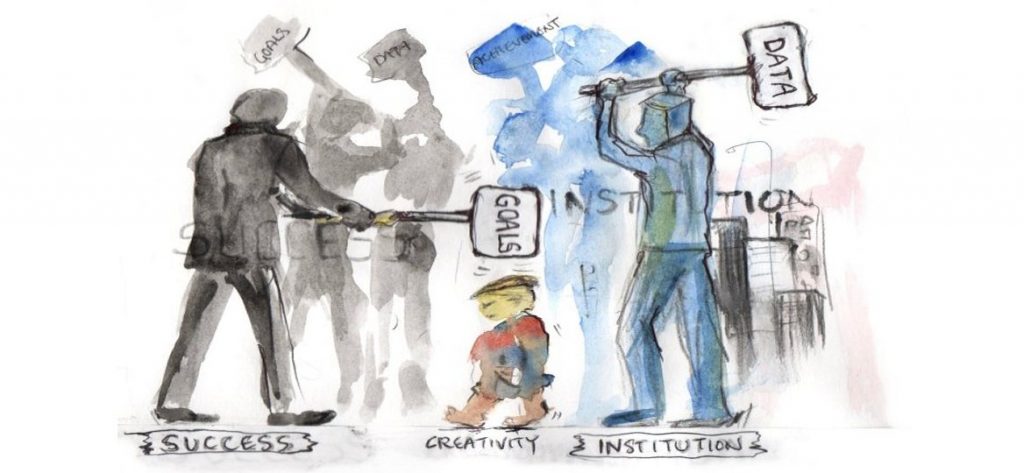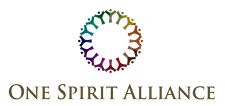Table of Contents
Are Ofsted and the DfE enforcing a materialisation of education?
Already in July 2019, in an Open Letter to Amanda Spielman of Ofsted, over 50 educationists criticised Ofsted for its narrow approach (see below, and click here for the Open letter to Amanda Spielman) – This letter is now more relevant than ever. The Ofsted methodology is a very materialistic carrot and stick approach reminiscent of long outdated Victorian industrial era ‘punishment & reward’ models, further exemplified in Skinner’s behaviourism of half a century ago. Business and community development models have long since moved on, recognising and encouraging individuals for their inner potential, realising that principles of self-empowerment and trust bring the greatest ‘rewards’ for the future – rather than outcomes oriented and data-based goals which much of industry heralded for more than a century, and Ofsted still mimics, bringing about a demoralisation of teachers and the teaching profession. It is the most draconian school’s inspectorate in the world, with high-stakes accountability methods, and with little meaningful thought (many words expressed don’t match deeds!) towards nurturing of well-being in teacher and pupils through holistic values which consider whole human development of body-soul-spirit.
Sir Michael Wilshaw, previous Ofsted chief, was known for his statement: “If anyone says to you that staff morale is at an all-time low, you know you are doing something right.” Chris Woodhead, one of the first Ofsted chiefs in the 1990s, said, “I want Ofsted to be an instrument of fear and terror for teachers.” It epitomises military style ‘command and control’ thinking, instilling fear as a motivation instead of trust, empowerment and love.
Further information on Ofsted can be found at the INSTED Facebook page: www.facebook.com/InspiringNewStandards
Spirituality in Education in the United Kingdom – June 2019
A proposal for strategy development and next steps. This paper arose out of meetings that have taken place over the past year, looking at the issue of religious education in schools and more generally spirituality in education. It is a proposal, guided by Janice Dolley and put together by Anne-Marie Voorhoeve of the Hague Center for Global Convergence, for the direction religious and spiritual education could take in the future, working with potentials within the new Ofsted framework. Click on the heading above for the full text.
‘Waldorf 100’ – Steiner Waldorf Schools celebrate 100 years!
In celebration of 100 years of a spiritually based holistic education. This year marks the 100th anniversary of the Steiner Waldorf Schools – a school movement with well over a thousand schools in over 60 countries world-wide, on all continents. Rudolf Steiner spearheaded a new approach to education, founded on the physical, soul and spiritual development of the child, nurturing the potentials which the incarnating child carries rather than simply trying to inculcate factual knowledge based largely on desired economic outcomes – a materialistic approach which was taking hold of much of education since Victorian times… Click on the header above for the the full article.
OFSTED – enforcing a materialisation of education?
In an Open Letter to Amanda Spielman of Ofsted, published nationally on 1st July this year, over 50 educationists criticise Ofsted for its narrow approach, inconsistencies and the profound negative consequences its approach has had on the whole teaching profession. Signatories include university professors and many notable names, including the former Archbishop of Canterbury Rowan Williams, and Tim Brighouse, former education commissioner. The Open Letter notes how the ‘gradgrind’ linear thinking championed by Ofsted and the DfE are inconsistent with the needs of our times: for an education nurturing the creativity and the spiritual potentials of our children. Click on the header above for the full Open Letter text! Pass it on, spread the word!
Working with the mental health crisis in children and young people –
Music and the arts should be a core part of the school curriculum, along with nurturing play and the sense of wonder and creativity which children so naturally possess. Incessant testing and our unquenchable desire for outcomes data threaten the creativity, health and well-being of our children. Click on the heading above for the full text.

